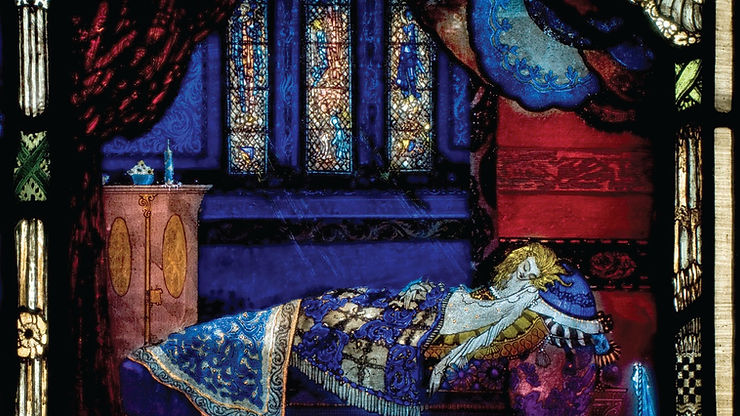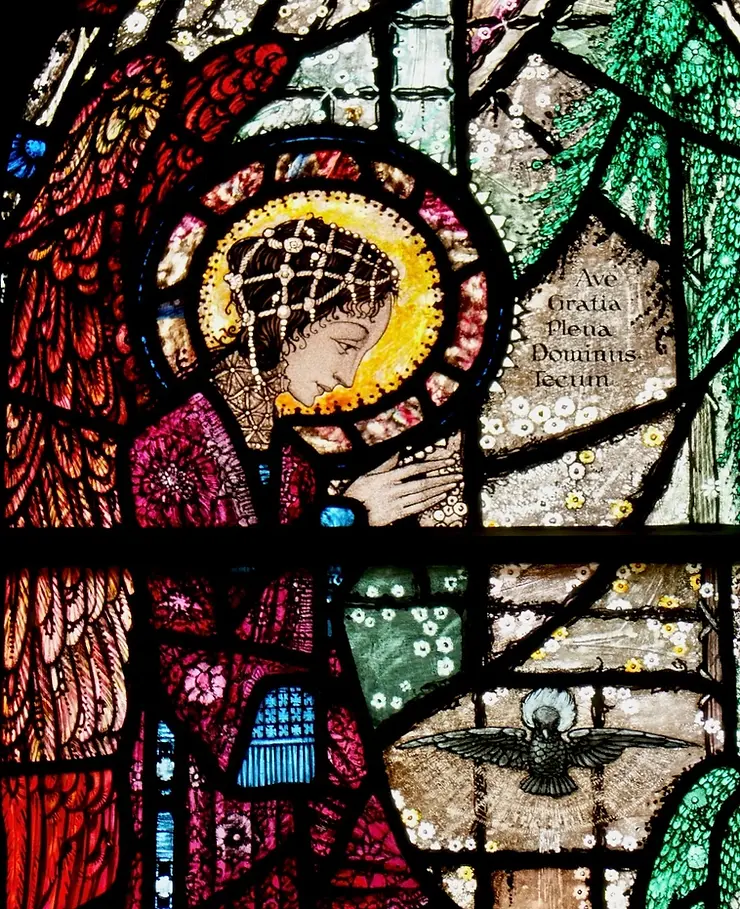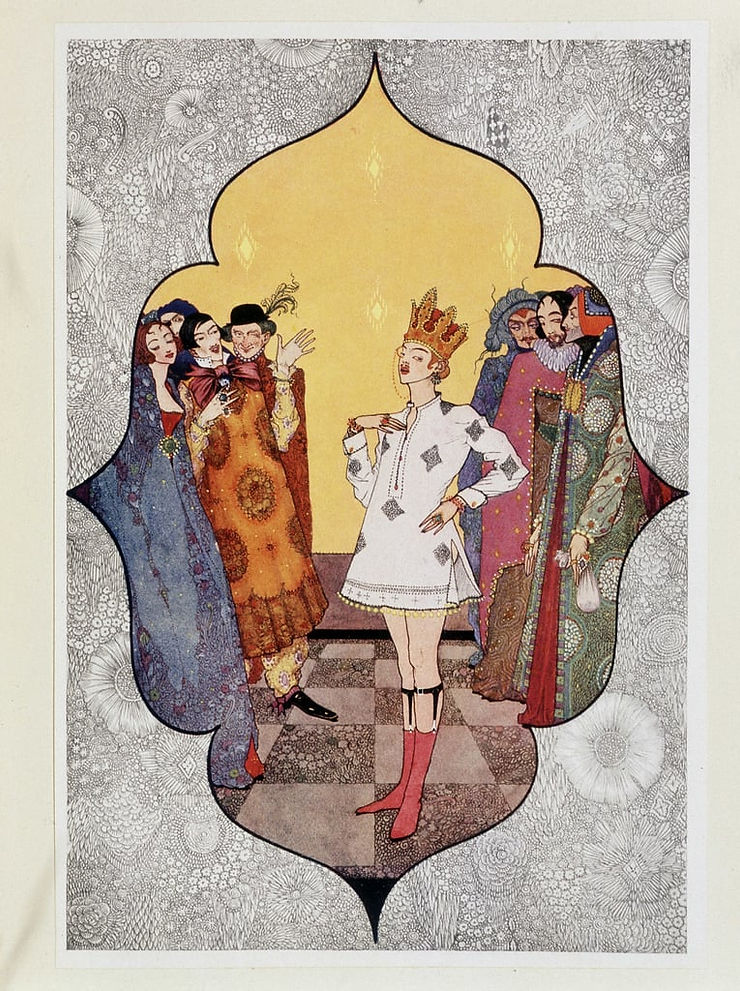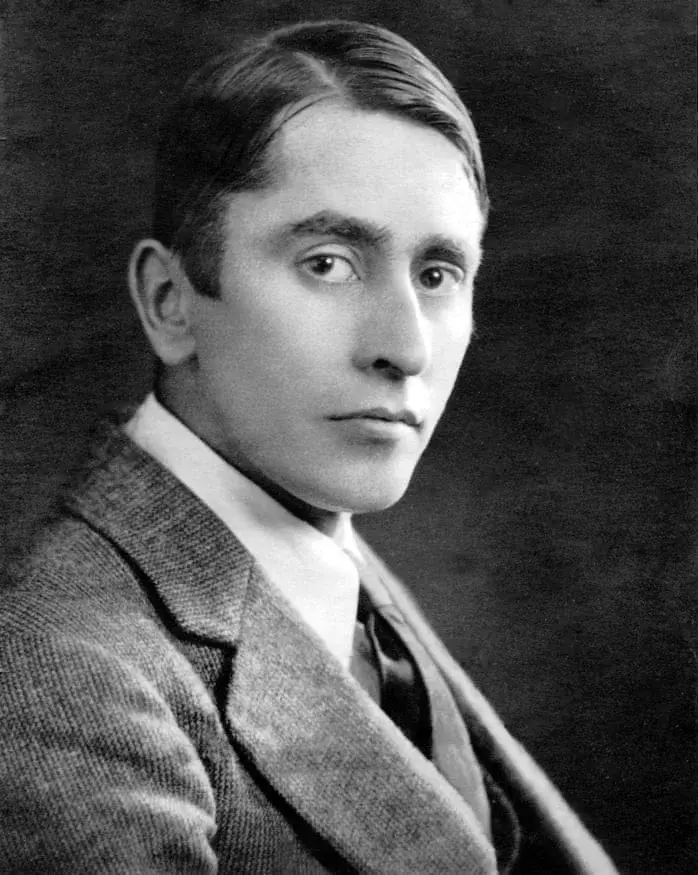Harry Clarke: A Stained Glass Visionary of Dublin
Welcome back to Dublin Diaries, where we delve into the lives and legacies of remarkable individuals hailing from Dublin. In this edition, we turn our attention to the mesmerising works and captivating, albeit tragic, life of Harry Clarke, a celebrated artist and stained glass designer.
The Early Years and Influences
Born on March 17, 1889, in Dublin, Harry Clarke would go on to become one of the most renowned stained glass artists of the early 20th century. From a young age, Clarke displayed a remarkable talent for drawing, which was nurtured and encouraged by his father, Joshua Clarke. Joshua, originally from Leeds, had moved to Dublin and created a church decorating business at No.33 Frederick St in the 1880s. He would incorporate a stained glass department in 1892. Joshua undoubtedly played a significant role in shaping Harry’s artistic journey.
Harry Clarke’s early exposure to the Gothic cathedrals of Ireland, England, and France profoundly influenced his aesthetic sensibilities. He was particularly drawn to the intricate beauty and storytelling potential of stained glass windows, which sparked his passion for the art form. Clarke’s formative years in Ireland, a land rich in Celtic heritage and mythology, would also play a crucial role in shaping his artistic style.

Education and Professional Journey
Clarke’s formal education took place at the Dublin Metropolitan School of Art, where he studied between 1903 and 1910, he studied under A.E Child. It was during this period that he honed his artistic skills and developed a deep appreciation for the Arts and Crafts movement, as well as the Art Nouveau style. Clarke drew inspiration from figures like Alphonse Mucha, Aubrey Beardsley, and the pre-Raphaelite artists, who championed a revival of meticulous craftsmanship and romantic storytelling. It was also at this Dublin School of Art that Harry would meet his wife Margaret Crilly, also an artist and teacher.
After completing his studies, Clarke joined his father’s studio as an apprentice, immersing himself in the world of stained glass creation. In 1913, he gained artistic recognition by participating in a stained glass competition organised by The Studio magazine. His winning design secured a commission for a set of windows at St. Joseph’s Church in Terenure, Dublin, thereby launching his professional career.

The Celtic Revival and Clarke’s Unique Style
The Celtic Revival, a cultural and artistic movement that swept through Ireland and other Celtic regions in the late 19th and early 20th centuries, had a profound impact on Clarke’s work. Inspired by Ireland’s rich mythology, folklore, and the intricate interlacing motifs of Celtic design, Clarke incorporated these elements into his stained glass creations, infusing them with a distinctly Irish flavour.
Clarke’s style was characterised by meticulous attention to detail, vibrant and jewel-like colours, and a profound sense of narrative. His windows were often filled with mythological creatures, biblical figures, and scenes from literature, blurring the lines between reality and fantasy. Clarke’s use of opalescent and plated glass, as well as techniques such as acid etching and plating, added depth and complexity to his pieces, further enhancing their ethereal quality.
Successes and Recognition
As Clarke’s reputation soared, commissions for his stained glass pieces poured in from around the world. Notable triumphs include his work on the Honan Chapel in Cork, the Chartres Cathedral in France, and the Geneva Window.
The Geneva Window, commissioned for the 1925 International Exposition in Paris, showcased Clarke’s technical mastery and creative prowess on a global stage.
The Geneva Window, like many of Clarke’s works, is a tapestry of symbolism and intricate details. It features a central figure of a young girl holding an apple, representing Eve from the biblical story of the Garden of Eden. Surrounding her are various scenes and figures drawn from mythology, literature, religion, and folklore. Clarke’s meticulous attention to detail and the interplay of colours and light within the glass create an ethereal and mesmerising effect.

A Dazzling Display of Technique
What sets the Geneva Window apart is not only its breathtaking imagery but also the impressive technique and artistry employed by Clarke. He used multiple-layered glass, acid etching, and shading to achieve stunning depth and nuances of colour. Additionally, the complex leadwork that holds the glass pieces together adds a level of intricacy and elegance to the overall composition. The result is a stunning display of artistic skill and technical mastery.
Clarke’s talent extended beyond stained glass to other artistic mediums. He illustrated several books, including Christian Anderson’s Fairy Tales and arguably most notably a deluxe edition of Edgar Allan Poe’s Tales of Mystery and Imagination, which showcased his extraordinary skill as an illustrator.

Legacy and Enduring Influence
Harry Clarke’s life was tragically cut short by tuberculosis, and he passed away at the age of 41 in 1931. However, his impact on the world of stained glass art and the broader arts community cannot be overstated. His contributions to the Celtic Revival, blending traditional craftsmanship with contemporary aesthetics and storytelling, continue to inspire artists today.
Clarke’s works can still be admired in numerous churches and public buildings throughout Ireland and beyond. In recent years, there has been a resurgence of interest in his art, with exhibitions and retrospectives bringing his stunning stained glass windows and illustrations to new audiences. Today you can view a collection of the stunning collection of works by Harry Clarke in the amazing Hugh Lane Gallery in Dublin’s Parnell Square. We would highly recommend a visit.
His unique style, inspired by Ireland’s rich mythological heritage, continues to resonate with art enthusiasts and serves as a testament to the enduring power of both Celtic culture and the art of stained glass.

George Russell referred to Harry Clarke as
“One of the strangest geniuses of his time”
Dublin Diaries: Unearthing the Legends of The Emerald City

